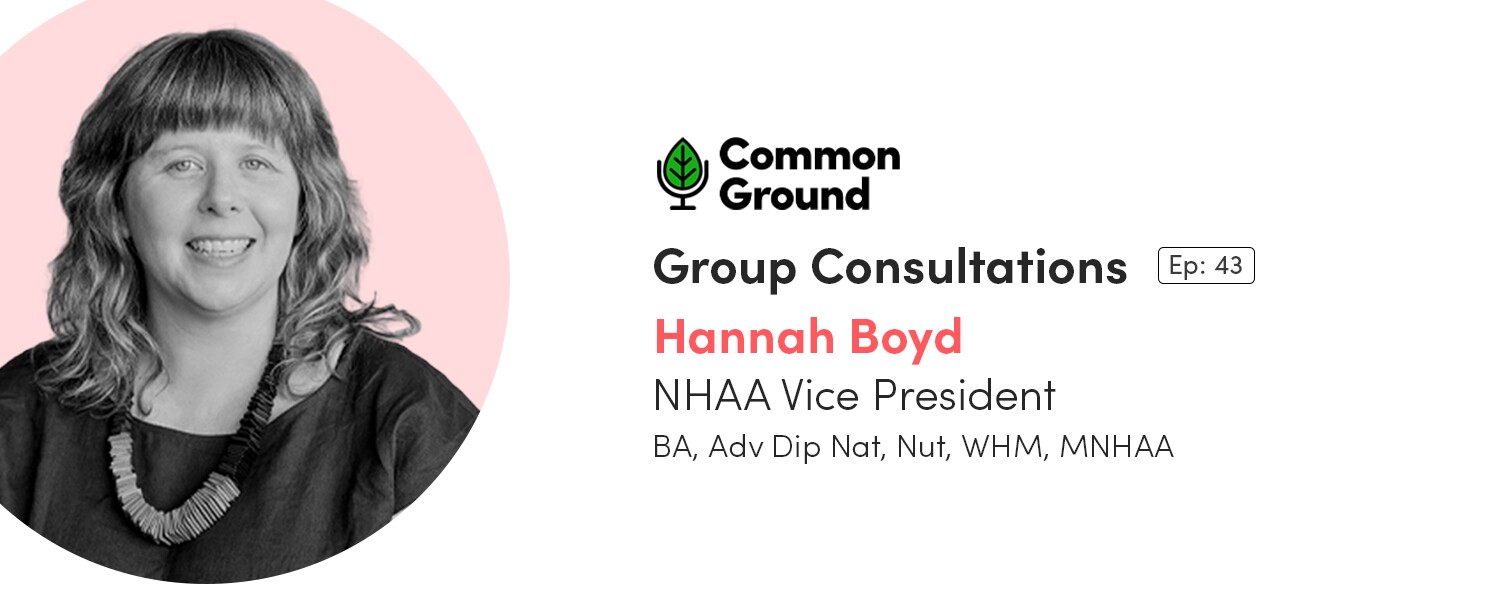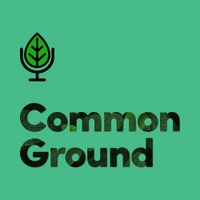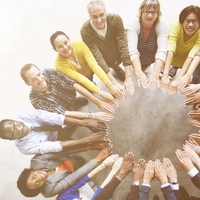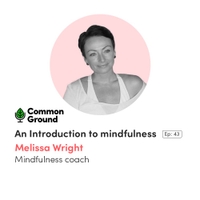
Listen on Amazon music | Apple Podcasts | Google Podcast | Spotify
Jacqui Fahey (00:05): Welcome to Common Ground, a podcast series discussing new research and interesting projects in the field of complementary medicine. Hello, my name is Jacqui Fahey, head of education at vital.ly.
Today on Common Ground, I shall be speaking with Hannah Boyd. Hannah is a naturopath, herbalist, and nutritionist based on the south coast of New South Wales. Hannah established her own naturopathic clinic, New Leaf Naturopathic Health, after graduating from her studies in 2012. The pandemic has radically changed Hannah's practice, pivoting her community based clinic in Sydney's Inner West to a totally virtual one, offering telehealth consultation to a wider audience. Her areas of interest include mental health, hormone health, and fertility. As a practitioner, Hannah's philosophy focuses on her patients’ stories and symptoms while providing personalised care in an inclusive environment with a few laughs along the way. Hannah was elected as board director of the Naturopaths and Herbalist Association of Australia in 2018 and has been vice president since 2021. She loves supporting her naturopathic profession and promoting the work naturopaths and herbalists do. As well as being a busy practitioner throughout her career, Hannah has volunteered at the Leichhardt Women's Community Health Centre as a research assistant. She has presented at various events, including the Real Food Project and the Marrickville Business Association. In 2019, Hannah was asked to present at the central and Eastern Sydney Primary Health Network Annual Conference, Rethinking Mental Health in 2019, as well as the 2021 National Symposium on Herbal and Naturopathic Medicine. Welcome to Common Ground, Hannah.
Hannah Boyd (01:53): Thank you Jacqui, lovely to be here.
Jacqui Fahey (01:54): So Hannah, I would love to hear further about group consultations. And firstly, if I can ask you, what are group consultations?
Hannah Boyd (02:05): Well, yeah, it’s something that I've started doing in my practice this year and I'm just really loving it. So group consults or shared medical consults is a bit of, from what I see, a little bit of a new model for naturopathic practitioners, but it's definitely something that comes from mainstream medicine and it is about getting a group of patients together with the same kind of condition, the same health concern, and seeing them all at the same time. So it's not a workshop, it's not just you standing there and telling them stuff and doing generic healthcare for everybody. It really is about individualised care in a group setting. So yeah, it's really fascinating.
Jacqui Fahey (02:44): Yeah, interesting. So how do they actually work, if you'd like to share an example.
Hannah Boyd (02:50): So I guess I started doing them through the group medical consults trial earlier this year with Sophia Gerontakos. It was about looking at women with endometriosis and taking nine girls, nine women that we had in that group over 12 weeks through six sessions. And each session had education. So you spend a bit of time doing, talking about different parts of health, and then the other part of the consult the session was about looking at individual consults for those people. So really you sit there, it is literally naturopathic practice to everything we do when we see our patients is about education, we're telling them and helping educate them about ways of looking after themselves and eating and moving and sleeping and self care. And then you do the consult, you check in on their health. The difference is that you're doing that in front of everybody all at the same time. So you have this one-on-one conversation with the patient. Everyone else is sitting there listening to them and they learn as much from each other as they do from you as the practitioner. So yeah, it's really fun.
Jacqui Fahey (04:03): Yeah, it sounds really interesting and obviously patients are comfortable sharing in that group setting yes?
Hannah Boyd (04:11): My experience so far is absolutely, yeah, I mean, I was blown away in that first session that Sophia and I did together for the trial where right from the get go people are talking about sex and poo and stresses and everything. There was no holding back, which is just so wonderful. You set ground rules at the beginning of the session, you know, really set those in place for everybody. So everyone understands that you have to be really mindful about advice giving and you have to be really respectful of other people's experiences and journeys because everyone has their own journey experience, particularly when you're looking at conditions such as the endometriosis, although there's lots of similarities in how people present with that condition, they're also very individual as well. And the group consults really allows them to have that individual kind of story that they have, but also listen to the common shared ground that they all have between each other as well.
Jacqui Fahey (05:08): Fantastic. And what made you as a practitioner get into doing group consults?
Hannah Boyd (05:15): It was actually a conversation that I had with the ever wonderful Rachel Arthur, probably about four or five years ago when I was pondering what to do with my practice and how I can continue to ethically see people and make it affordable and help people in a way that was actually really helpful for them. And she said, ‘you should look at group consult Hannah.’ And I didn't really know how to engage with that or do with that, but it just kind of bounced around in the back of my head. How do you do group consults? I didn't want to do just an online webinar series where people could just tap in and do that. Because I think the thing I love about naturopathic care is that individual care that you give everyone through that moment that you spend with them, but then how can you continue to provide that's affordable for people who have chronic conditions where you need to check in on them more frequently, or you need to maintain that kind of support ongoing without it costing them too much money.
And also then for the practitioner, your calendar isn't stretched beyond belief because you're carrying the load of all these different patients and working more than you want to I guess. So it was really that kind of thinking that made me really want to explore it, and I didn't really know how to do that. So when I saw Sophia advertising for the group consults, the Endo group trial that she was doing through Southern Cross University, I kind of hassled her a little bit because I know that she wasn't really planning on doing a virtual telehealth one. She wanted them up there on the Northern Rivers, Gold Coast and Brisbane. And she did run successful groups up there at the same time. But I think because of the pandemic and because of telehealth and because maybe I was pretty persistent, she also let me join the group, which was great.
Hannah Boyd (07:07): So yeah, and with that training, with that group at Southern Cross, and Sophia put us, all the people that did it, put us through training that we could do so we could learn about group consults and know how to do it properly. So when it came time to run the trial, we were really across how to do it as well, which was great. Because we were part of the trial as much as the patients were. It was really about looking at how to deliver group consults in a naturopathic setting, which hadn't been studied before as far as I know.
Jacqui Fahey (07:36): How interesting. And you've touched on it, what are some of the benefits of doing a group consult for the patient and for the practitioner?
Hannah Boyd (07:45): So I guess the thing for the patient outcomes is really, really beneficial as far as I can see so far. They feel very supported in the group work. So often with chronic conditions, there's a lot of sense of isolation that people have. They don't feel like they feel, they complain to their partners and their family and their friends all the time about not feeling very well or not having enough energy. I mean, most of the time they're not doing that, but that's just the perception that they feel because they've been stuck in this condition for such a long time and suddenly you put them in a room or a virtual room with a bunch of people who are going through exactly the same things. They just get this support from each other, which I think is really fascinating. You could see it in the Zoom calls that we have when someone's talking about something really difficult or sharing something or may have a bit of a tear or the feelings of love that just come through the zoom.
Yeah, you can just see it. Or it's not just the little heart emojis in the chat. They're very, very sincere and very meaningful. And so that makes people feel really validated in their health. And I think that's really important. I guess they do get naturopathic care, which is individualised, so there's not one prescription for everybody. Like, okay, everyone's going to go away and take magnesium this week. It's really like, what do you need right now and how can we help you? And I think that they get the best of that both worlds. They get the best of naturopathic education and they get individualised care. So I think that there's a lot there. For me, I made a joke that it's kind of a bit like naturopathic tap dancing in a way because you are doing 7, 8, 9 consults all at the same time, which is quite intense in a sense.
But I'm definitely one of those practitioners, if I don't feel rushed in making a decision or prescription, I'll go, I'll get back to you about that one. So you can take your time outside that consult to continue thinking about it. You don't feel like you need to do it on the spot if you don't feel comfortable, but you do. I think for the practitioner, for me, I like being able to offer affordable naturopathic care for people. I think it makes it much more affordable. It really, there's something, the energy of it is really good. I think I quite enjoy that aspect of it as well.
Jacqui Fahey (10:06): Yeah, absolutely.
Hannah Boyd (10:08): And I think it just encourages people to continue naturopathic support if they need it without as many barriers as there may be for longer consults over more time.
Jacqui Fahey (10:20): And so for a practitioner, can they just set this up? Do it on their own? Or do you need a group consult facilitator and why?
Hannah Boyd (10:30): Look, I think, you know, you could do it on your own, absolutely. But the model of shared medical consults really does rely on a facilitator to be there as well. And I guess I didn't really understand what that meant until I saw it in action. And some of the training you do, the videos you see, see how that works and Sophia's my facilitator at NewLeaf now, which is so wonderful that she's working for me after we went through the trial together as well as she continues to write up her PhD and the results from the study. But the facilitator's role is, I mean, it's a naturopaths dream really. I kind of think I wanted a facilitator in every appointment I do with everybody because her job is to note take. So she will keep a note of everything that's going on, she'll write it on a board or whiteboard on the Zoom so other people can see what's happening, checking in on people. She will make sure that anything that's mentioned, if I mention a book or a resource or something, she'll note that down. And then at the end of the session, she'll make sure that everyone gets a copy of the link or the thing that I've been mentioning as well. And you'll take all the patient notes as well. So really my job when I'm there as a practitioner is just to be the practitioner.
Jacqui Fahey (11:45): it’s being very present.
Hannah Boyd (11:47): Yeah. Because it is faster paced. You kind of have, you need that so you're not really distracted by writing on bits of paper and looking up and writing on your, tapping on your keyboard and stuff. So she also organises everything as well. So anything to do with the sessions, the prenotes, the after notes. Also now we're working together on some of the other programs that we're going to start running in 2023. So yeah, it's great to have a facilitator. It makes it really important.
Jacqui Fahey (12:16): Is that group consult facilitator required to be a practitioner themselves?
Hannah Boyd (12:21): Look, they don't have to be, I don't think there is specific training that I would recommend people go through. So because it really is important to understand, it is very useful that they know a little bit about the model of healthcare that's being offered because they are note taking and they're needing to pull out what's important and remember things that if they didn't understand the world of the terminology, it might be really confusing. So I think definitely a great job for students or new grads as well to look at offering because it means that you, you're sitting there looking at a practitioner work.
Jacqui Fahey (12:59): Yes, that's true.
Hannah Boyd (13:01): Right. And supporting them through really valid work as well. And actually seeing the patient experience as well, which I think is really valid for newer grads to watch out for as well.
Jacqui Fahey (13:10): Absolutely. And what kind of groups are you planning on running?
Hannah Boyd (13:15): So at the moment I'm running an existing endo group for my existing patients and people from the trial that I've moved over. So that, it's a sort of an ongoing group that I'm sort of running at the moment. And next year we're opening up a perimenopause group, which I'm really excited about because it's one of those worlds that there's so many different things that affect people and it's one of those also conditions that people feel really, or there's times of life where people feel really confused about what's happening to their bodies. And getting them all in a room together would just be, Oh, that's not just me that's feeling that way. So I'm really looking forward to that one. Going to start that in February. And also going to open up another endometriosis group again to new patients as well. And I think what really struck me when I did the group initially, when we opened it up to new people, there were people in there that had never seen a naturopath that didn't understand what naturopathy was. So you really have to make that education really simple and really approachable to everybody's lives. So there's no perfect in it, it's just trying to take people where they are and educating them and then they can really see what the benefit naturopathy and nutrition and herbal medicine has to their lives. So yeah, that's the goal for next year.
Jacqui Fahey (14:35): That's exciting and beautifully holistic.
Hannah Boyd (14:39): I'm really finding it really exciting. I think if I can help more people together, help them feel better and also then for the benefits for my practice is massive. I'm seeing more patients all at once, I guess. So then I'm not so overwhelmed with lots of longer appointments with other people and just, I think the benefits are super two way on that one. So fun.
Jacqui Fahey (15:08): And how, if practitioners wanted to find out more about running their own group consult, are there resources that they can go to?
Hannah Boyd (15:16): Yeah, there's a couple of places. I mean, I know Sophia's definitely going to start doing some education for naturopaths and complementary practitioners once she's through the grind of her PhD. So I think that's in the works and I can't wait for that to happen. Running our education is going to be the key for that. So that's super exciting. Yes there's a couple other places. So in Australia, the Australasian Society of Lifestyle Medicine, they do some education for group medical consults. It’s really geared for GP’s I guess to look at how they can bring that into their practice. So I guess a lot of GPs look at it for people like diabetes and pain management and those kinds of things. So it works really, really well in those settings for those kind of conditions. So that education is there, but you can look at it and go, yes, that makes sense. We know how to talk about lifestyle support much better than, it’s
our thing. We can all do our own thing. There's an American group called the Integrated Centre for Group Medical Visits, the ICGMV. They did lots of training and stuff overseas as well, but they're really good resources as well, I think. And there's a good book for community care by James Maskell, a good one to have a look at as well. So transforming health outcomes together.
Jacqui Fahey (16:38): Oh, okay. Good. Great. Thank you for that. So you've relocated out of Sydney? How does virtual telehealth world suit you? You mentioned that earlier.
Hannah Boyd (16:51): Yeah, I mean look it, it's crazy. I never saw myself as a telehealth practitioner. I was always based in my little clinic in Marrickville, which you've been to a few times as well. And I never thought I would do anything different. And I think it took me about 18 months of doing telehealth through the pandemic, I went, this actually works. Before I actually believed it and with that, I just decided to relocate out of Sydney to live instead of doing my walks around the industrial zones of Alexandria. I'm now a walk around the lovely Jervis Bay and it's unbelievably different.
Jacqui Fahey (17:31): That sounds like lovely.
Hannah Boyd (17:32): Yeah, it's good. I mean, it's good to practice what you preach, lifestyle stuff. But yeah, for my clinic it's been wonderful. And I’ve brought on a new practitioner and yeah, everything's going super well and just, this is not a plant, but shout out, couldn't do without vital.ly in every single way.
Jacqui Fahey ( 17:44): Thank you.
Hannah Boyd (17:48): You guys have saved us a lot during the last few years, so yeah, It's been quite some interesting times for us all hasn't it? in the past few years.
Jacqui Fahey (17:58): Oh my God, absolutely. Yeah.
Hannah Boyd (18:04): And is it over yet?
Jacqui Fahey (18:04): No, no, I know, that's right. That is the question actually. With regards to the group consults, just wanted to finally ask you, is this something that you are conducting mainly online at the moment? Or you can do a mixture of face to face and online?
Hannah Boyd (18:21): Look, I think generally they work face to face really, really well. I think the original model was for that. I know through the American group, the Integrated Centre of Group Medical visits, there's a lot more telehealth training that they're doing Zoom calls that they're doing. And I think as with everyone, they've had to really pivot to that virtual world. And I think it works quite well. Telehealth is a bit, you have to work a little bit more to maintain that connection with patients, I think through that virtual screen. So I can appreciate, it's not for everybody, but absolutely. There's definitely other pracs that are doing it in person around. And as I would any other naturopath or herbalist that's doing group consults in Australia, I'd love to have a gang together so we can all support each other beause I think the more people that are doing it, the more accessible naturopathy comes and the more support people get. So yeah, just shout out to me if you do.
Jacqui Fahey (19:20): Oh, well said. Well, thanks so much Hannah for sharing such valuable insights into group consultations. It sounds something very inspiring for the profession as well as for patients.
Hannah Boyd (19:32): Yeah. Thanks Jacqui. I love talking about it, and thank you for giving me the opportunity to do so.
Jacqui Fahey(19:38): Thanks Hannah. Thanks for tuning in today. Please feel free to leave us a review. We'd love to hear from you.
Resources: James Maskell – The Community cure, transforming health outcomes together.






